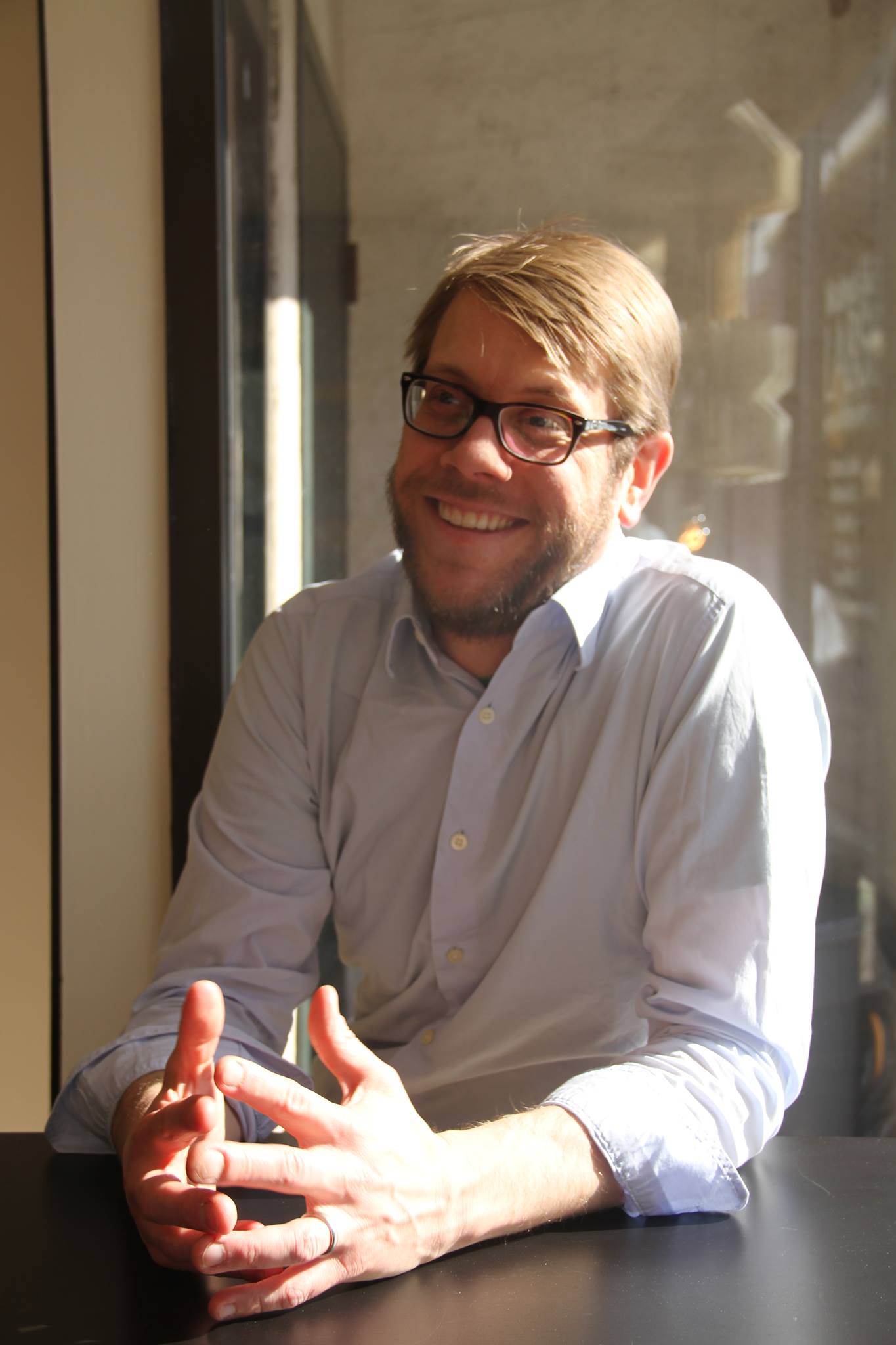Contributor Spotlight: Christopher Merkner
 Christopher Merkner’s story “A Lesser Trouble” appears in Midwestern Gothic Issue 18, out now.
Christopher Merkner’s story “A Lesser Trouble” appears in Midwestern Gothic Issue 18, out now.
What’s your connection to the Midwest, and how has the region influenced your writing?
I was born in Oak Lawn, IL, just outside of Chicago, and I grew up in Wauconda, IL, which is in Lake County, IL, north and west of Chicago. I spent a good deal of those years in northern Wisconsin, because my family would frequently summer there with parishioners from my father’s Lutheran Church. And I went to college in Northfield, MN. After college, I came back to Illinois to live with my parents for about a month — and then that was it. I never really came back, except to periodically visit my extended family.
Regarding “influence”: I’m not going to let myself say that the Midwest as a whole has the market on unhappiness and self-loathing, but I’m usually unhappy with my writing and generally cannot tolerate hearing myself talk about it, and I think that comes right out of my experience of the heartland. There was something in my semi-rural, semi-suburban Wauconda upbringing—the Lutheran Church, the relentless clouds, the cheerless schooling, the fishing for pike and coming up perch, who knows what—that I believe has made me just tirelessly tired of myself.
What do you think is the most compelling aspect of the Midwest?
Almost all of my not-small extended family lives in the Midwest, and I like them a lot. So, for me, they are the most compelling part of the Midwest.
How do your experiences or memories of specific places—such as where you grew up, or a place you’ve visited that you can’t get out of your head—play a role in your writing?
Well, again, I am probably addressing this in your first question, when talking about “influences,” because the emotional evocations I feel from the specific places I lived, stayed, or visited in the Midwest are dominated by fairly powerful feelings of unhappiness, frustration, anxiety, inadequacy, futility, etc. And yet these feelings are also competing with the powerful feelings of my youth and all the feelings that come with youth: my innocence and slow awarenesses, or what I guess we call discoveries, and my friendships and love, and acts of kindness and mercy.
The lake across the street from our house in Wauconda is a good example of this: you couldn’t pull me off that lake through my years from 10 – 16, summer and winter, for fishing, skating, swimming, everything. Day and night. As many hours as I could squeeze out of a day and night, I’d be out there. Amazing memories. My head and heart go there all the time still. But these are also the years my parents were working through major problems with their drinking, and I was no doubt using this lake, this place, as a space of escape and refuge.
It wasn’t just fun that I experienced at that lake, that’s for sure. That lake doesn’t just represent a place of freedom and innocence and youthful discoveries, or whatever. It was also a sort of self-imposed ad-hoc sanctuary: Where else could I have gone to get out of that house? In semi-suburban, semi-rural Illinois? Nowhere, really. Maybe the Arby’s. And what was on my mind when I was out there on that lake? Surely not just, “How wonderful this is!”
Discuss your writing process — inspirations, ideal environments, how you deal with writer’s block.
I try to write in the morning, every morning, before the kids are up. This is a pretty common practice for writers, I’ve heard. Once the kids are up, my real life begins and, from there, I try to squeeze words in where I can. I’ve given up on ideal environments to write—that’s a luxury I do not seek any more. I just write where I am sitting, usually with pencil.
How can you tell when a piece of writing is finished?
I really don’t think of a story or writing as finished. It will go away for a while, I’ve found, and ideally it’s published, but writing—published and otherwise—always seems to come back, requesting new attentions, new accommodations, new requests. It’s never done.
Who is your favorite author (fiction writer or poet), and what draws you to their work?
Anyone who knows me knows I am too poorly read to commit to this question. Of what I am reading right now, I can say that I am most drawn to Bernhard’s The Voice Imitator and Kawabata’s Palm-in-the-hand Stories. I’m getting ready to teach a class on compressed fictions, and I am finding a great deal to admire in these two collections.
What’s next for you?
I have several writing projects I’m working on, but let’s talk about these after they’re “finished.” I think I am just going to try to focus on being a better husband and father right now.
Where can we find more information about you?
I post various milestones on my author’s page on Facebook (https://www.facebook.com/ChrisMerkner), and I tinker on Twitter (@CCCmerkner).






